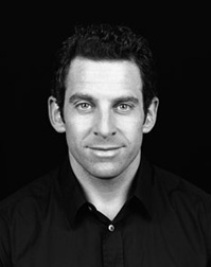Dr. Eben Alexander has written a book called Proof of Heaven: A Neurosurgeon's Journey into the Afterlife, about his near death experience that resulted from a severe case of bacterial meningitis. Newsweek magazine recently published a cover story titled Heaven is Real: A Doctor's Experience With the Afterlife, about Dr. Alexander and his book. I was vaguely aware of the news. However, I've been busy with the current virtual book tour for my own recently published paranormal-thriller titled Secondhand Sight, and so I hadn't really had time to read stop and read it. If interested, you can follow my tour at The Virtual Book Tour Cafe. I'll be sure to tell a couple of my best personal ghost stories along the way to keep things interesting. I only mention ghost stories because I believe that near death experiences are real phenomena due to a number of my own personal experiences with ghosts. By simple extrapolation, I believe that ghost encounters could be considered as nothing more than After Death Experiences. Granted, some of them are more interesting than others. But then I noticed a very intelligent Facebook friend had offered his opinion on this subject, posting that atheist author Sam Harris had completely "demolished" Alexander's account, at least from a scientific perspective. Curiosity naturally got the best of me. My friend's strongly stated opinion made me wonder what exactly Harris had said about Alexander's NDE. I've read several books by Harris, most recently Free Will, so I am familiar with the author's work. Because my friend is a … [Read more...]
Mental masturbation
When someone goes out of his or her way to ask me to do something very specific, I usually try to accommodate them, especially if the request is reasonable. Though I've been quite busy editing the draft of my coming novel Secondhand Sight, my friend Sean made a point of asking me to read Free Will by Sam Harris. I protested that I was busy writing and editing my novel. Readers of my first Robert Mercer mystery, titled Coastal Empire, have been clamoring for the sequel, which won't come after Secondhand Sight. I don't want interest to wane, while I'm screwing around reading another writer's book. Sean persuaded me by countering that the Harris book was short, and an "easy read." So I splurged on Amazon, shelling out $3.99 for the Kindle edition. What a sucker I am! Oh, it was short, all right. And an easy read. But more importantly, the book proved to be an utter waste of my time and money. Love ya, Sean, but I should have just kept writing. Do not assume that I fail to appreciate Sam Harris as a writer. On the contrary, I thought his book The End of Faith was quite good, though I disagreed with most of his conclusions. It was quite brave of Harris to admit that he believes in a spiritual facet of the universe that inexplicably exists, but cannot be defined in conventional, scientific terms. The "Fourth Horseman" clearly departed from Daniel Dennett, Christopher Hitchens, and Richard Dawkins on that point. Harris said he prefers the term "mysticism" to "spiritualism" to describe this phenomena he accepts, because he believes the latter term has more … [Read more...]
The science of eternity
I'm somewhat accustomed to receiving presents on my birthday, but it was something of a surprise when a friend sent me a present on his birthday. I felt pretty bad, because I didn't get him anything. His gift was a link to the website for the Campaign for Philosophical Freedom, specifically directing me to a page featuring a program divided into eight parts called The Science of Eternity. It's the best present I've ever received to commemorate someone else's birthday. It turned out to be quite educational. I learned something about Sir William Crookes, the brilliant British scientist. Crookes was a chemist who discovered the chemical element thallium, essential for medical equipment such as MRI machines. He was also a physicist who invented the vacuum tube, essential discoeries making the computer monitor and television screens possible. The program also exposed me to the work of Sir Oliver Lodge, another British physicist who invented wireless telegraphy, which also contributed to the invention of television by Scottish engineer John Logie Baird. All three men were also founding members of the Society for Psychical Research, and the video claimed these men allegedly carried out experiments that "proved" life continued after physical death of the human body. The substantiation for those claims turned out to be a bit difficult to find; the interviewee and presenter alluded to the existence of proof of the afterlife, but didn't describe or elaborate on it. The definition of scientific proof offered was "repeatable experiments backed up with a theory that has a … [Read more...]

